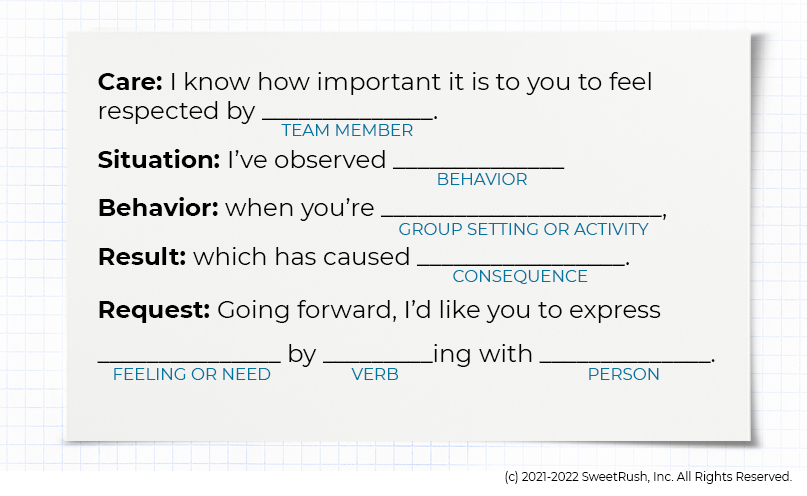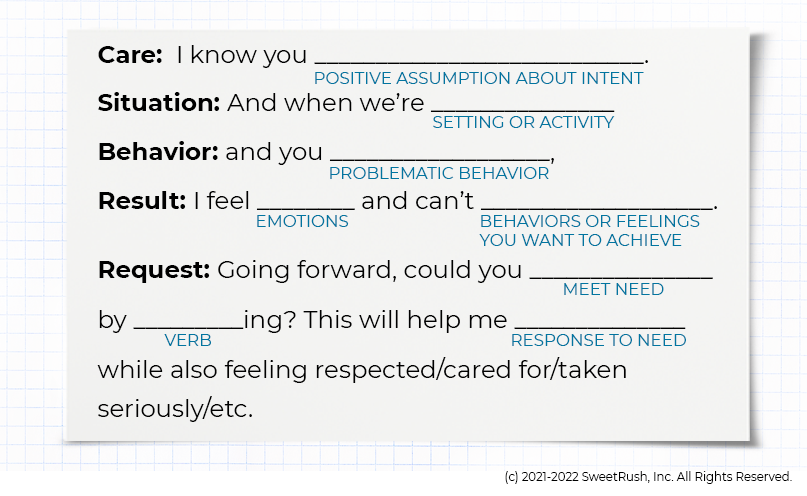Lately, our collective conversation around emotional resilience has been incredibly rich—and necessary. And the timing comes as no surprise: We’re all trying to heal from the stress, hardship, and isolation the pandemic continues to bring.
We might notice that our emotions are a bit tender and our well of resilience a bit tapped. We’re not bouncing back from criticism or terse words quite the way we used to.
That’s why it’s more important than ever to treat one another with care. Doing so inspires others to show care in turn and contributes to the psychological safety of our teams. (Try our five-step “Communicate for Resilience” challenge with your team!)
Of course, work goes on—and at some point, we’ll need to give each other sensitive feedback at not-so-great times. How can we balance the need to have tough conversations with the need to show care and preserve our relationships?
Preparing for Human-Centered Conversations
Before we begin, we need to be in a good place ourselves. That means we’re feeling calm and have the bandwidth to consider what’s best for our teammate. (Need some help getting there? Step 1 of our emotional resilience challenge will help.) Then we deliver our feedback in a warm, well-meaning, and constructive fashion.
Sounds great, right?
It is great. But in the moment, it doesn’t always go so smoothly. We bungle, we blurt, and we blank out on the supportive, encouraging things we meant to say.
Using proven human-centered feedback methods inspired by authors Sheila Heen and Kim Scott, we’ve created a collection of customizable feedback mad libs. (Remember those?) Writing your script for kind, constructive, effective feedback is as easy as filling in the blanks. We’ve included mad libs for communication, performance, and team relationships—plus a wild card you can use anywhere, anytime, with anyone.
Getting difficult, caring conversations right is vital. So why ad lib…when you can mad lib?
Starting Your Script: Five Essentials
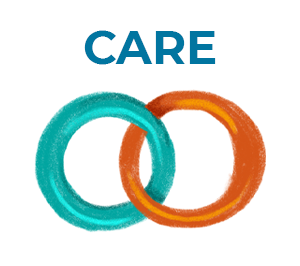 Establish right away that you care about the person and that your feedback comes from that care. Remember that your teammate may not be expecting to receive feedback—that’s why we open with care.
Establish right away that you care about the person and that your feedback comes from that care. Remember that your teammate may not be expecting to receive feedback—that’s why we open with care.
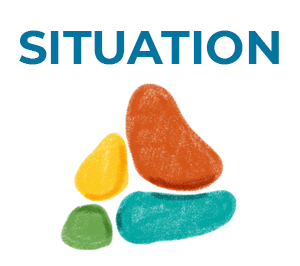 Describe the situation clearly and concisely so that your teammate understands the context of your feedback.
Describe the situation clearly and concisely so that your teammate understands the context of your feedback.
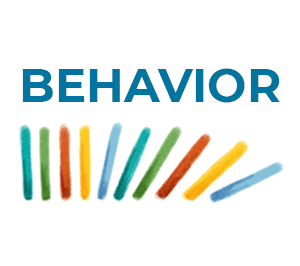 Give an example of the behavior you observed—this is what you want your teammate to do differently, do more of, or stop doing.
Give an example of the behavior you observed—this is what you want your teammate to do differently, do more of, or stop doing.
 Explain the consequences—good or bad—of your teammate’s behavior in the situation.
Explain the consequences—good or bad—of your teammate’s behavior in the situation.
 Ask your teammate to commit to a concrete action going forward.
Ask your teammate to commit to a concrete action going forward.
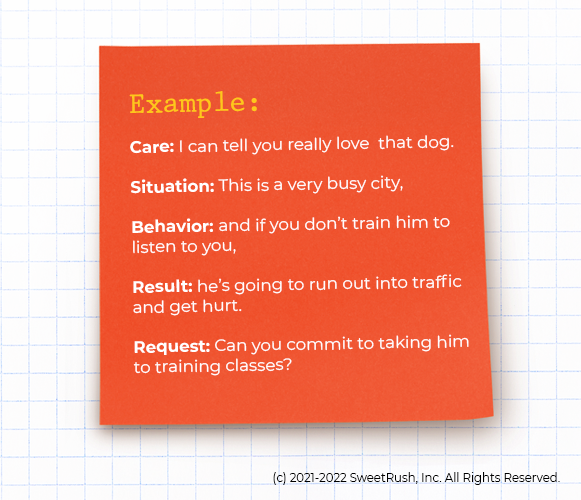
Let’s warm up with an example of how that might look in a friendly conversation with a teammate.
Once you get comfortable with this basic script, you can add some flourishes of your own. Caveat: When we get nervous, we tend to add too many flourishes that can lead us off script.
Ready to rehearse a real-live coworker communication situation?
Mad Libs: Four (Potentially) Fraught Feedback Situations
Coworker Communication
Got a team member who does beautiful work…in secret? This mad lib will help you encourage them to share their milestones with the rest of the team.
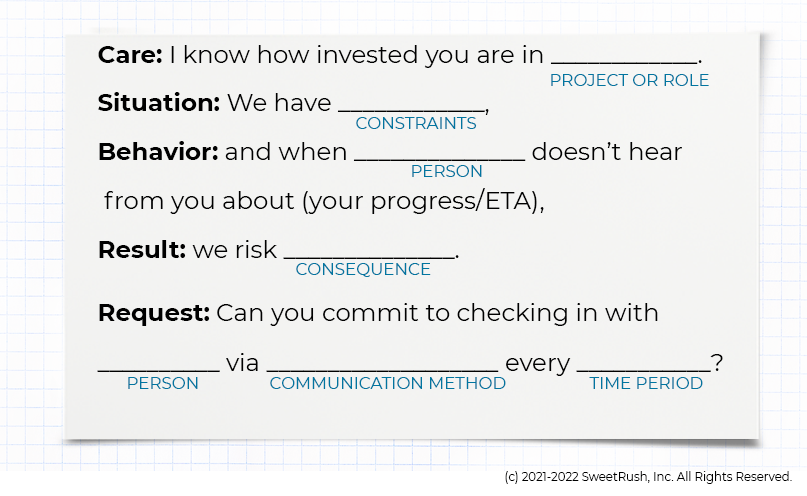
Work Quality
The life stressors we’ve all been facing can prevent us from reaching our full potential—and this can affect the quality of our work. Completing this mad lib will help you and your teammate create a plan to protect your projects.
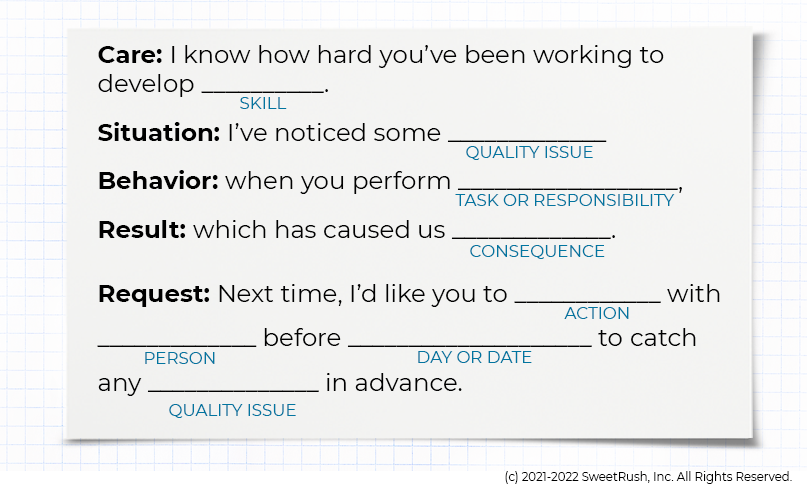
Coworker Relationship Issues
Acute stress makes higher-order thinking physically impossible, which means our teammates might have trouble applying the Golden Rule. We all slip up—but when you see a pattern of misdirected emotions, this mad lib can help you approach your teammate with kindness and understanding.
Wild Card: Human-Centered Feedback for Everyone
If you’re like 99.9999% of people, you might have seen some opportunities to give constructive feedback to folks in your family, neighborhood, and community. Personalize this mad lib to organize your thoughts and approach with care.
From the Page to the Stage: Continuing the (Caring) Conversation
Feedback conversations do get easier, we promise. And the biggest enabler is an organization-wide business practice built upon caring, commitment, and goodness—one with the “care and resilience of human workers” at its center. You’ll find that a human-centered organization treats its people with care and compensates their work with abundance.
Want to learn more about how to communicate, collaborate, and thrive on a human-centered team? Our eBook It’s All About Your People!: Embracing Human-Centered Business, Workplace Culture, and Learning Design will help you find the words, mindsets, and practices to re-create work as a source of resilience.
It’s a curated collection of lessons learned from our two decades together as a human-centered organization—and decade-plus as a fully remote team. Whether you’re a leader, a manager, or an individual contributor, you’ll find plenty of proven steps you can take today (or anytime!) to be happier and healthier at work.

